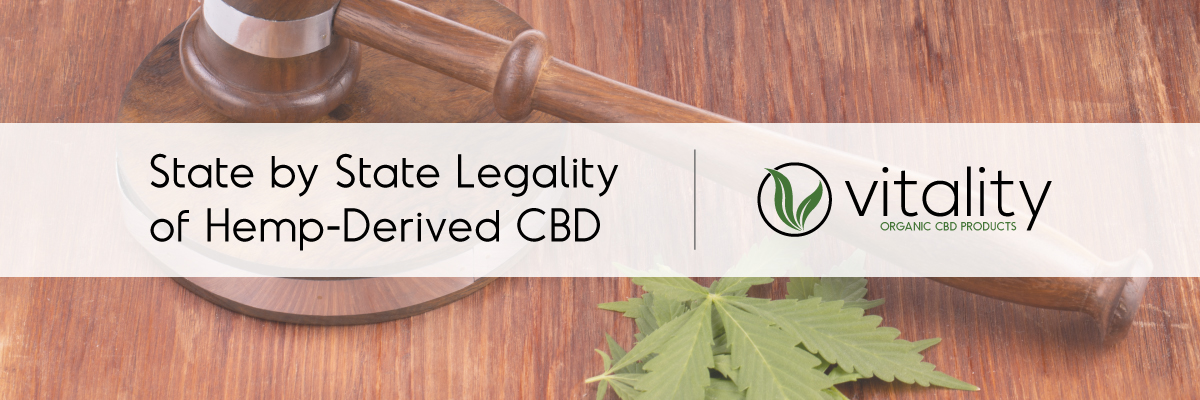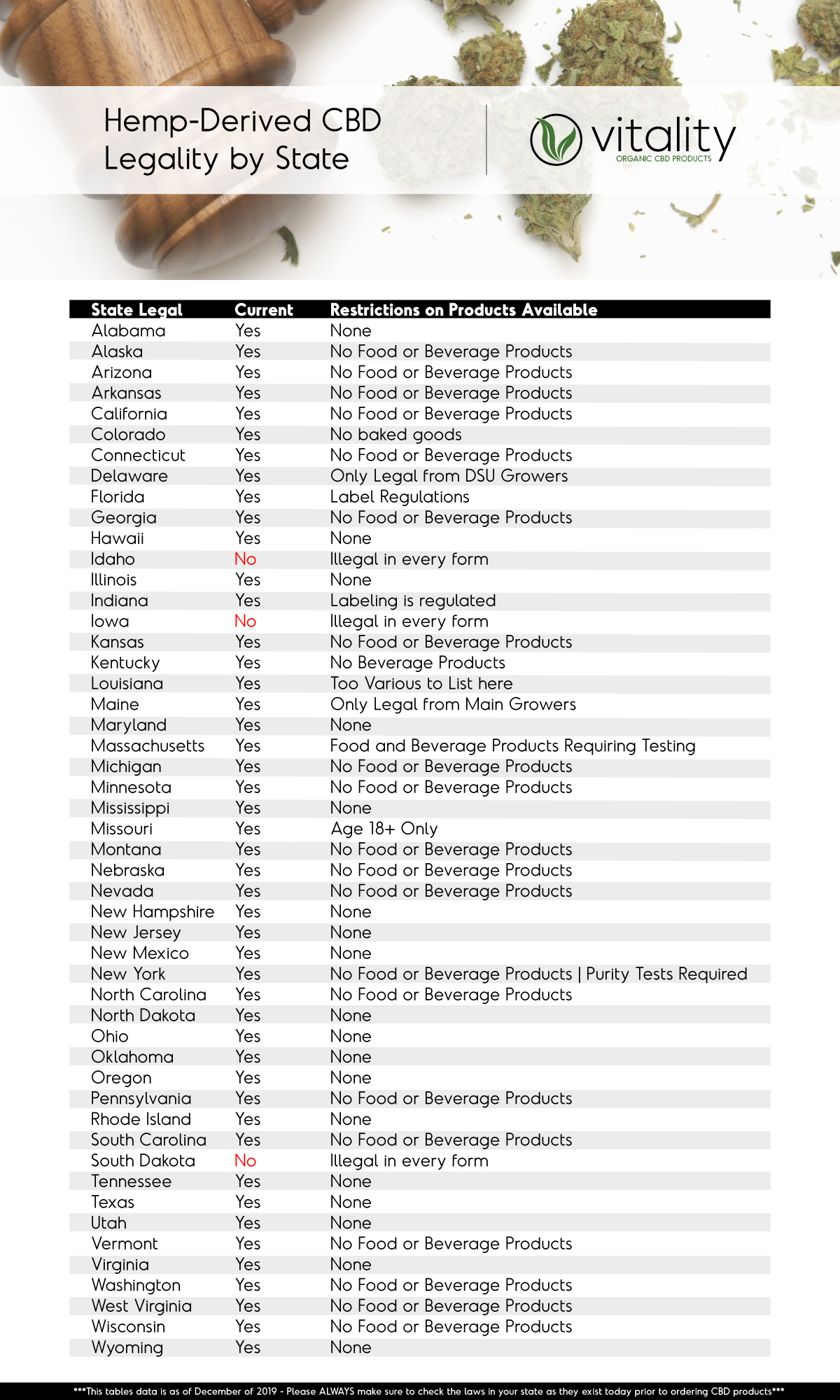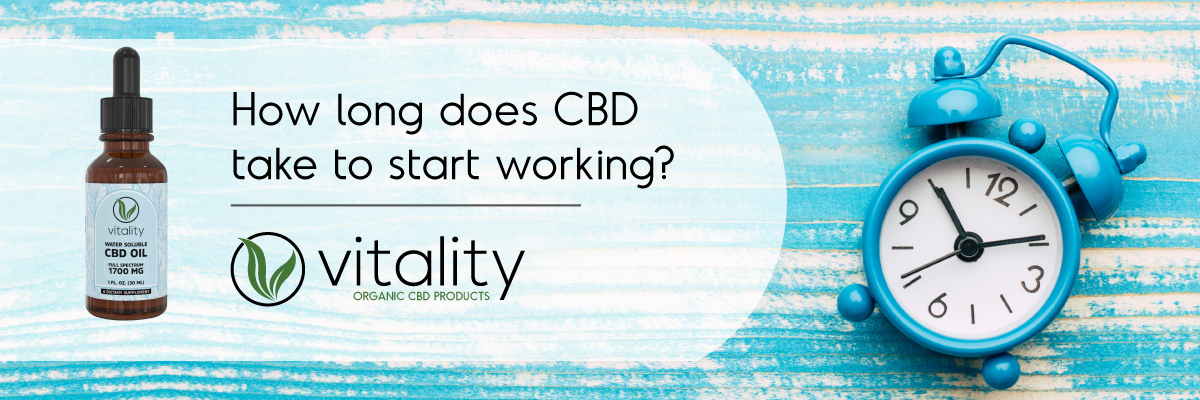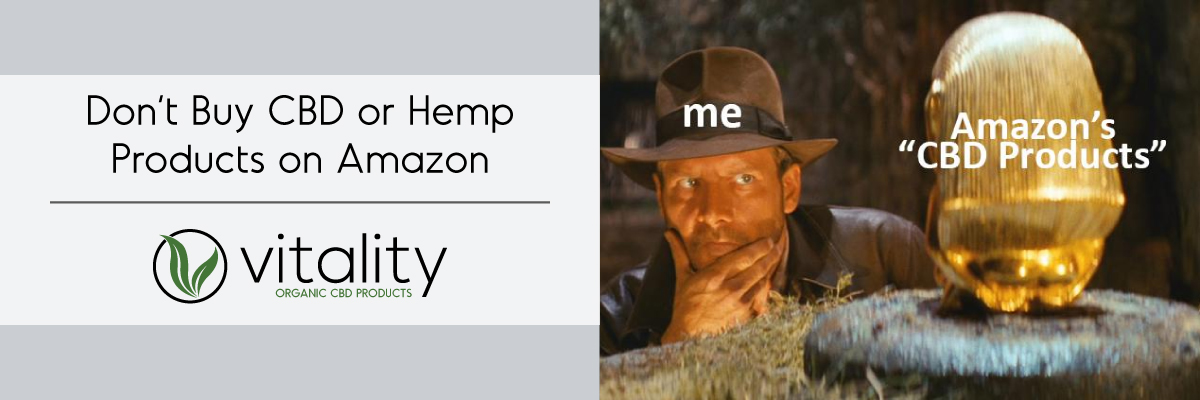
CBD Legality State by State
State by State Legality of Hemp-Derived CBD
As CBD has become increasingly popular across the United States, more people are finding it is being used in various products. However, while there is little doubt CBD popularity continues to grow, so do the questions pertaining to whether or not it is legal. To complicate this, laws vary from state to state, so ordering CBD products can sometimes be a frustrating experience. Though CBD that is derived from hemp has been federally legal since 2018, that does not necessarily mean it is legal where you live. If you've still got more questions than answers, here is some information you might find useful.
Agricultural Improvement Act of 2018
The Agricultural Improvement Act (AIA) of 2018 was signed into law by President Trump, and is commonly known as the Farm Bill. As for how it applies to CBD, it removed hemp from the Controlled Substances Act, thus allowing CBD made from hemp legal. However, while you'll assume this means all CBD extracted from hemp is legal, that may not be the case. Since hemp and marijuana are both cannabis, the sticking point comes down to the fact that the federal government considers cannabis containing less than 0.3% THC be legally classified as hemp.
Legitimization as Agricultural Crop
While the AIA legitimized hemp as an agricultural crop, it did little if anything to ease its path to nationwide legalization. Now, those in the CBD industry are trying to figure out the various legal nuances that continue across multiple states. To have any chance of figuring out the status of hemp and CBD within your state, it is necessary to know how federal and state laws, along with various "mixed jurisdictional" laws enforced by health departments and other related agencies, approach this issue.
Federal Laws
Thanks to the passage of the AIA in 2018, federal law became much clearer regarding hemp and CBD. Since this bill was passed, the DEA is no longer interested in who is growing hemp, extracting CBD, or happened to be in possession of one or both. Due to hemp and its derivatives no longer being classified as controlled substances under the Controlled Substances Act, the U.S. Food and Drug Administration is tasked with regulating food and drug products derived from hemp.
State Laws
While federal law is actually pretty clear on its stance toward hemp and CBD, state laws can have you confused enough to be pulling out your hair and beating your head against a brick wall. To demonstrate this, all you have to do is look at various states and their laws. For example, if you live in Iowa, South Dakota, or Idaho, CBD is illegal in every way. However, North Dakota, New Jersey, and New Mexico consider CBD legal without any restrictions. But then again, if you live in California, Washington State, Alaska, or other states, CBD is legal. However, it cannot be sold in combination with beverages or foods--that is, unless it is in a licensed cannabis store. Finally, Vermont considers CBD to be legal. However, if it's added to Vermont's famous maple syrup, it's illegal to label the syrup as "pure maple syrup."
FDA Rules Forthcoming
Sometime in 2020, the FDA will likely present an initial draft of its rules concerning CBD. However, the agency is in a bind before its draft ever leaves the starting gate. CBD has already been approved in the form of the drug Epidiolex. Thus, FDA rules state that it's not allowed to be sold in over-the-counter products.
Local Health Departments
Local health departments throughout the United States are handling the CBD issue in various ways. Even if a state does allow the sale of hemp-derived CBD, local health departments may prohibit its sale. This often happens when included in foods and beverages at commercial establishments. This is the case in Seattle and other areas of Washington State. Here, local health department officials decided to require restaurants that were serving CBD-infused foods and beverages to stop until additional facts are learned about CBD.
Consumer, Manufacturer, and Retailer Rules
As you can see, consumers, manufacturers, and retailers have conflicting areas that may overlap from time to time. As per 2020, there are a few things that do seem to be clear at the moment. For consumers, it is legal to possess and consume CBD in all states except South Dakota, Iowa, and Idaho. In the case of retailers and manufacturers, the laws are more complex and overlapping. For these reasons, it's important to always buy from a CBD retailer that you trust.
The safest way to purchase and use CBD products is to buy from a trusted retailer. Also, familiarize yourself with the laws where you live.
About Vitality CBD™
Vitality CBD exists to provide a healthy and natural alternative to the pharmaceutical industry. We embrace charity, sustainability, quality, trustworthiness, and domestic sourcing as our core operational values. All our CBD products are grown, harvested, extracted, and bottled all in American owned and operated facilities. Vitality CBD products are certified Non-GMO, Organic, Vegan, and Gluten-Free. Take 20% off your first online order with code FT20 today!




